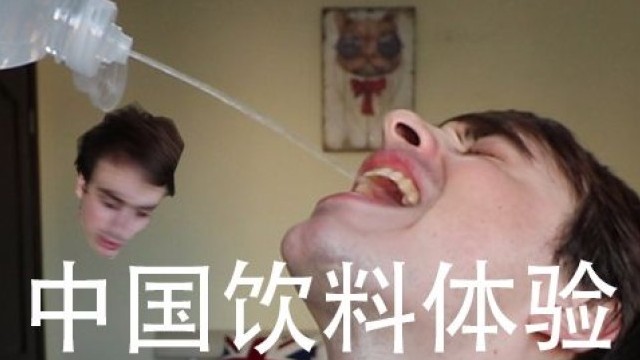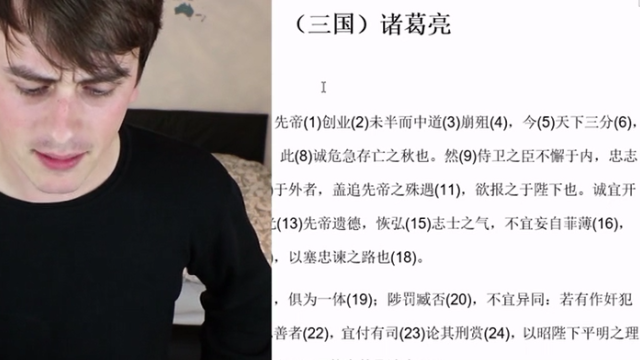诗人海子二十三周年祭:海子经典诗歌英译
昨日3月26日是著名诗人海子的忌日,全国各地掀起了海子周年纪念的活动。我们都知道那句温暖“面朝大海,春暖花开”,还有这位理想主义诗人短暂却绚烂的一生。在这个春暖花开的时节,小编带你重温海子的经典诗歌:
海子:70年代新文学史中一位全力冲击文学与生命极限的诗人
Hai Zi wrote several long poems, "choral operas" and countless short poems in his brief life. His style is generally described as "anachronism". Many of his short poems contain symbolic images like Land, Sea and Wheat field and recall the ideals of the ancient Chinese pastoral poet Tao Yuanming. Hai Zi was also obviously influenced by Western philosophy and arts, especially Nietzsche and Van Gogh. And the strong sense of mysticism in all of his works is probably one of the most important characteristics which turned him into a unique figure of Chinese literature.
海子诗歌英译:
Some of his poems have been translated into English. A bilingual book of his poems "Over Autumn Rooftops," translated by Dan Murphy, was published in 2010 by Host Publications. Accompanying poetry translations of Ye Chun in Wheat Has Ripened are prose translations of Hai Zi by Fiona Sze-Lorrain, forthcoming from Tupelo Press in 2012.
英国人丹·墨菲(Dan Murphy)将海子的诗集《秋天的屋顶上》译成英文出版,英译诗集中收录了100多首海子的诗歌,其中两首《写在脖子上的菩萨》与《死亡之诗》(之三:采摘葵花)部分英译如下:
《写给脖子上的菩萨》
菩萨是一位很愿意
帮忙的
东方女人
一生只帮你一次
这也足够了
通过她
也通过我自己
双手碰到了你,你的
呼吸
两片抖动的小红帆
含在我的唇间
菩萨知道
菩萨住在竹林里
她什么都知道
知道今晚
知道一切恩情
知道海水是我
洗着你的眉
Bodhisattva is an Eastern woman
she is very willing
to help
she helps you only once per life
and this is enough
passing through her
and passing through myself
two hands happen upon you, your
breath
two trembling little red sails
between my lips
Bodhisattva knows
Bodhisattva lives in a bamboo forest
she knows everything
knows tonight
knows all love
knows seawater is me
washing your eyebrows
《死亡之诗》(之三:采摘葵花)
雨夜偷牛的人
爬进了我的窗户
在我做梦的身子上
采摘葵花
我仍在沉睡
在我睡梦的身子上
开放了彩色的葵花
那双采摘的手
仍象葵花田中
美丽笨拙的鸭子
雨夜偷牛的人
把我从人类
身体中偷走
我仍在沉睡
我被带到身体之外
葵花之外。我是世界上
第一头母牛(死的皇后)
我觉的自己很美
我仍在沉睡
a rainy night a cow thief
climbs in my window
and on my dreaming body
picks sunflowers
I remain deeply asleep
and on my dreaming body
colorful sunflowers bloom
those picking hands
like beautiful and clumsy doves
in a field of sunflowers
on a rainy night a cow thief
steals me
from my human body
I am still deeply sleeping
I am taken beyond my body
beyond the sunflowers. I am the world's
first cow (the empress of death)
I feel that I am beautiful
I am still deeply sleeping
海子最为人熟知的诗歌《面朝大海,春暖花开》写于1989年1月,但在这首温暖的诗作写成2个月后,海子在中国山海关卧轨自杀。
《面朝大海,春暖花开》(网络译文)
从明天起 , 做一个幸福的人
喂马, 劈柴,周游世界
从明天起,关心粮食和蔬菜
我有一所房子,面朝大海,春暖花开
从明天起,和每一个亲人通信
告诉他们我的幸福
那幸福的闪电告诉我的
我将告诉每一个人
给每一条河每一座山取一个温暖的名字
陌生人,我也为你祝福
愿你有一个灿烂的前程
愿你有情人终成眷属
愿你在尘世获得幸福
我只愿面朝大海,春暖花开
From tomorrow on, I will be a happy man;
Grooming, chopping, and traveling all over the world.
From tomorrow on, I will care foodstuff and vegetable,
Living in a house towards the sea, with spring blossoms.
From tomorrow on, write to each of my dear ones,
Telling them of my happiness,
What the lightening of happiness has told me,
I will spread it to each of them.
Give a warm name for every river and every mountain,
Strangers, I will also wish you happy.
May you have a brilliant future!
May you lovers eventually become spouse!
May you enjoy happiness in this earthly world!
I only wish to face the sea, with spring flowers blossoming
【沪江小编】这首著名的《面朝大海,春暖花开》并没有权威的官方翻译版本,各位沪友可以尝试翻译一下,用你的英译文来纪念这位伟大的诗人。
- 相关热点:
- 大学英语四级词汇











